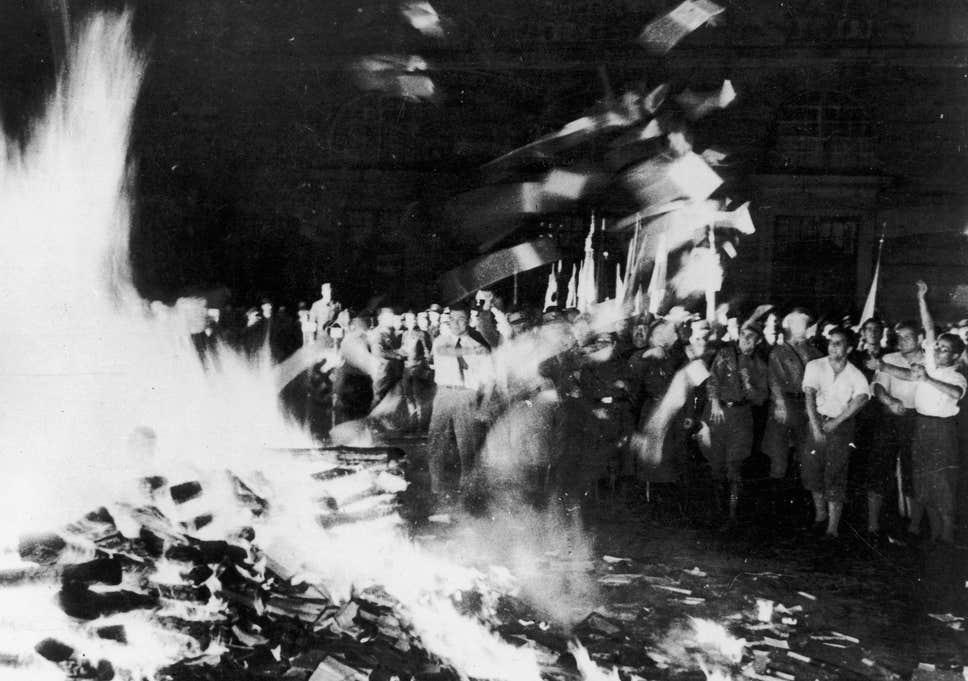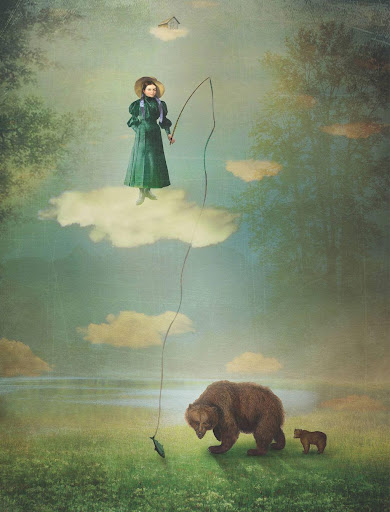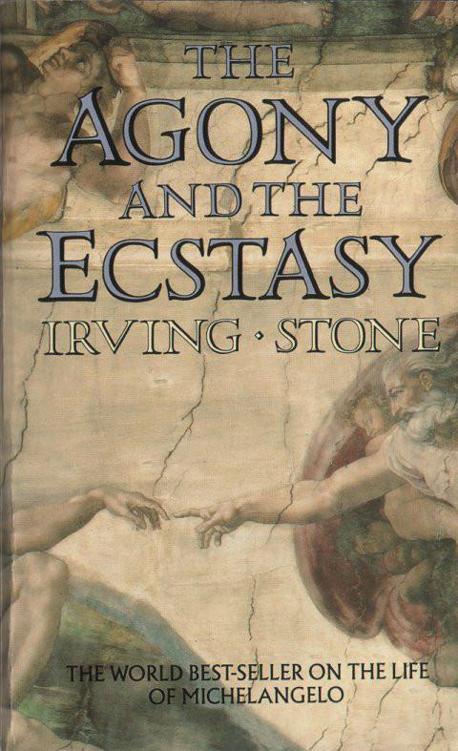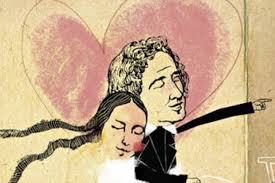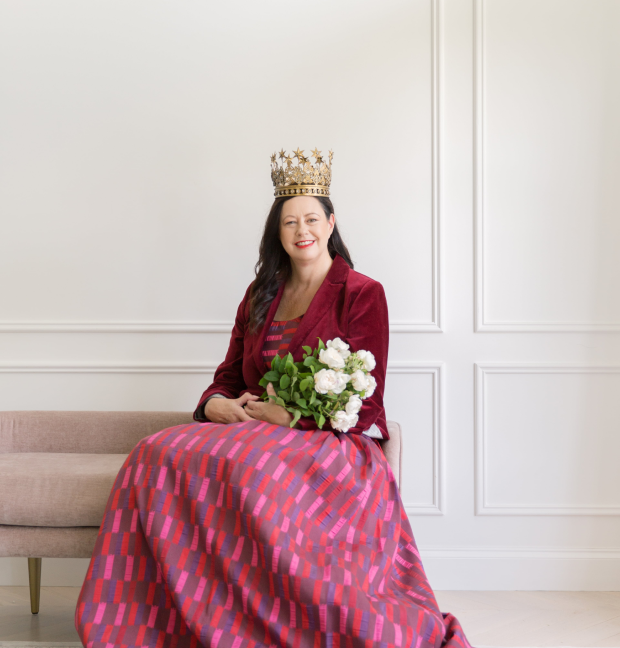Books are dangerous.
I have known this ever since I set my bed on fire when I was about four years old. My sister and I had been tucked up in bed, but I wanted to keep on reading. I waited until my mother had gone, and then I created a tent under my bedspread and dragged my bedside lamp inside, the light burning down on the page. Gradually my eyelids sank lower. Gradually my breathing deepened. I fell asleep (it must have been a really boring book to put me to sleep so fast). The paper began to smoulder. Smoke wreathed up. The book burst into flame. So did my bedspread.
My mother has no sense of smell. Luckily for me, she saw the smoke seeping out from under the door and so was in time to save my life.
When I tell this anecdote to school students, I always ask them; ‘What do you think is the moral of this story?’
Some good, obedient child will always say: ‘Don’t read under the bedspread when you’re meant to be asleep?’
‘No!’ I cry. ‘I would never say “Don’t read”. The moral of the story is: Never Read A Boring Book. Read something that’ll keep you up all night! Read one of my books (but make sure you use a torch, not a lamp).’
And being obedient children, they do.
I don’t remember learning to read. It seemed to happen very easily and naturally. I do remember my first day at school. When my teacher realised I could read fluently, I got to spend the day sitting in a beanbag in a corner of the room, reading my way through the classroom library, while the other students were taught their ABCs. I went home in an absolute fever of delight and told my mother, ‘I love school.’ She was called in to speak to the principal and castigated for teaching me to read. My mother asked: ‘how was I meant to stop her?’
The first novel I ever read by myself was The Lion, the Witch and the Wardrobe by C. S. Lewis. My sister Belinda and I were staying with our aunt, and she was reading it to us every night. Both Belinda and I were utterly enchanted by the story, and played Narnia all day long. My sister aggravated me beyond endurance by reading on in the story, saying, ‘You’ll never believe what happens next!’ I had to find out. As soon as she put the book down, I picked it up and began to puzzle my way through. Slowly the black hedge of thorns on the page parted, revealing a snowy landscape of dark trees through which the light of a lamp-post glowed …
It all begins with our eyes. Only the centre of our retina has enough resolution to recognise small print. It can see only one word or so at a time. Each word is split up into letters, syllables, prefixes, suffixes, phonemes. It must then be put back together before our brain can recognise it as a word.
The neural networks of our brain then get to work. The phonological route located in the temporal lobe converts letters into speech sounds. The lexical route located in the frontal lobe gives meaning to the word. The limbic system deals with the emotional connotation of words, while the angular and supramarginal gyrusserve link together all the different parts of the brain together … and all in less than one-fifth of a second.
Let’s say it a little more simply.
When we read the word ‘cat’, our brain sees those black marks on a white page, and at once sets to work to understand it.
Our auditory processors give us the sound of the word so that we ‘hear’ it silently: kuh aaah tuh.
Our temporal lobes give the word meaning: a small, furry, carnivorous mammal. Our visual processors create a mental image which will be different for each individual and shaped by their own life experiences (I always see a black slinky creature with glowing green eyes and a hooked tail, but others may see a purring grey tabby or a fat orange tom).
Our sensory processes remind us of the touch of a cat’s silky fur, while our limbic system will imbue the word with emotional meaning.
For some, delight. For others, disgust.
All of this happens in a flash, our brains lighting up like globes of white fire.
Meanwhile, our brain is sending out all kinds of signals that spark chemical responses in our bodies – the release of adrenaline if we are reading a thriller, oxytocin if we are reading a tear-jerker. Such chemical reactions can alter our brain’s fundamental structure … forever.
No wonder books are so dangerous.
In the novel I am now writing, my heroine Ava is a young woman living in Berlin during the Third Reich. On May 10 1933, in Berlin, more than twenty thousand books were burned by the Nazis. Books by authors such as Sigmund Freud, Alfred Einstein, H.G. Wells, Helen Keller, James Joyce, Leo Tolstoy, and the 19th century German Jewish poet Heinrich Heine who wrote: ‘Where they burn books, they will also ultimately burn people.’
Ava asks her father why the Nazis are burning books. He tells her: ‘Because books are dangerous! Nothing opens up the mind and the heart like books do, and so they have the power to change the whole world. That’s why they are burning books, Ava. To stop us thinking, and feeling, and imagining …’ He could not go on. Pulling his handkerchief from his breast pocket, my father mopped his eyes and blew his nose. ‘That is why we must do all we can to resist them, Ava. They would make us robots without a soul.’
When I read, the real world disappears and only the invented world of the book remains. It is like stepping through a gateway into another time or another world, like slipping inside someone else’s skin. Whilst I am there, I can dance with dryads, or struggle with my own shadow upon an uncharted sea, or huddle in hiding from a Black Rider. I know what it is like to be a rabbit shivering in the heather, watching my warren being bulldozed. I know how it feels to be poor, obscure, little and plain, yet to love with all my heart. Whatever tribulations I suffer in the world of the book, whatever triumphs I win, they change me as if they had really happened. Whatever I learn returns with me to the real world.
In books, I have lived immeasurable lives.
When I was a child, I was such a bookworm that I troubled and bewildered my very bookish parents. I would borrow six books at a time from the local library, and have read them all by the following day. I used to walk home from school reading. I would become so absorbed in the book that I would walk past my turnoff, and some considerable time later look up, finding myself blocks away from home. I’d miss my stop on train journeys. I would not hear my name being called in class. I would read so late at night that I could hear the kookaburras’ weird cackle as I reluctantly turned the last pages.
Much of my childhood is a blur, because I spent so much of it with my nose in a book. Elsewhere.
I can, however, remember nearly every book I have ever read, and usually I can remember where I was when I read it.
‘A Little White Horse’ by Elizabeth Goudge was first devoured when I was about ten, in hospital. The walls were bare and discoloured, the linoleum was cracked, and the food was watery and tasteless. How I longed to be at Moonacre Manor, in a bedroom with a vaulted ceiling, delicate ribbings of stone curving over my head like the branches of a tree, sleeping in a four-poster bed hung with pale blue silk curtains embroidered with silver stars.
How I salivated at the descriptions of supper: ‘home-made crusty bread, hot onion soup, delicious rabbit stew, baked apples in a silver dish, honey, butter the colour of marigolds, a big blue jug of warm mulled claret, and hot roasted chestnuts folded in a napkin.’ Over the course of the next few chapters, Maria feasts on sausages, coddled eggs (I did not know what coddled eggs were but they sounded so delicious!), veal-and-ham-and-egg pie, cinnamon syllabub, plum cake, saffron cake, meringues, almond fingers, lemon curd sandwiches, gingerbread …in my imagination I feasted, and so the paucity and insipidity of the food on my hospital tray was forgotten.
A lot of the books that meant the most to me when I was a child were read in hospital. A childhood accident which destroyed my left tear duct meant that I was in and out of the emergency ward constantly. ‘The Secret Garden’ By Frances Hodgson Burnett, ‘Cue for Treason’ by Geoffrey Trease, ‘The Apple-Stone’ by Nicholas Stuart Gray and ‘The Witch’s Brat’ by Rosemary Sutcliff were all books my mother brought me from our local public library. I devoured them hungrily while lying in my narrow metal bed, tucked in tight with hospital corners, a patch over one eye. Always I loved stories of adventure and mystery and magic. My body was kept prisoner by railings and intravenous drips and monitors, but my mind could roam free. It does not matter how awful real life is – there is always a way to escape it through the pages of a book.
The summer I read ‘The Dark is Rising’ by Susan Cooper was scorching hot, bare-legs-sticking-to-the-vinyl-car-seat hot. I can still remember the chills that ran all over my body as I read the opening scenes: the sky darkens, the storm gathers, and Will hears the whispered words, ‘The Walker is abroad …this night will be bad and tomorrow will be beyond imagining …’
I read ‘Till We Have Faces: A Myth Untold’ by C.S. Lewis in the old frangipani tree in the garden of my great-aunts’ old fibro cottage, surrounded by sweet summery smell of the flowers, but inhaling instead the ‘temple-smell of blood … and burned fat and singed hair and wine and stale incense … the Ungit smell.’
The very first teenage party I was ever invited to, I spent the evening hidden behind the curtain in a window-seat reading ‘Precious Bane’ by Mary Webb, a book I had discovered on the host’s bookshelf. While everyone else drank and smoked and danced and snogged, and the music thump-thump-thumped, I sat with harelipped Prue and listened to ‘a still evening with the snow all down, and a green sky, and lambs calling … and the crying of the mere when the ice is on it ...’ and the sound of drowned bells coming from under the water.
Leo Tolstoy’s ‘Anna Karenina’ was read on a train, after my parents’ divorce. The book is full of rocking motion, and dark tunnels, and the shrieking of brakes.
I have read in boats and on beaches and in baths, in trees and on trains and in taxis, in planes and on pony-back and in parks, in cars and bars and spas and bazaars (all true!) I read upside-down and back-to-front if I have to (the words, not me).
However, reading alone, late at night, is my favourite way. It is such an acute and secret pleasure. All is quiet and dark. Shadows lean over you, but the small light that you read by is a golden globe of protection, a little sun that shines on a multitude of worlds in which anything might happen.
Books are a true kind of magic, and that is why they are so dangerous and so essential.


